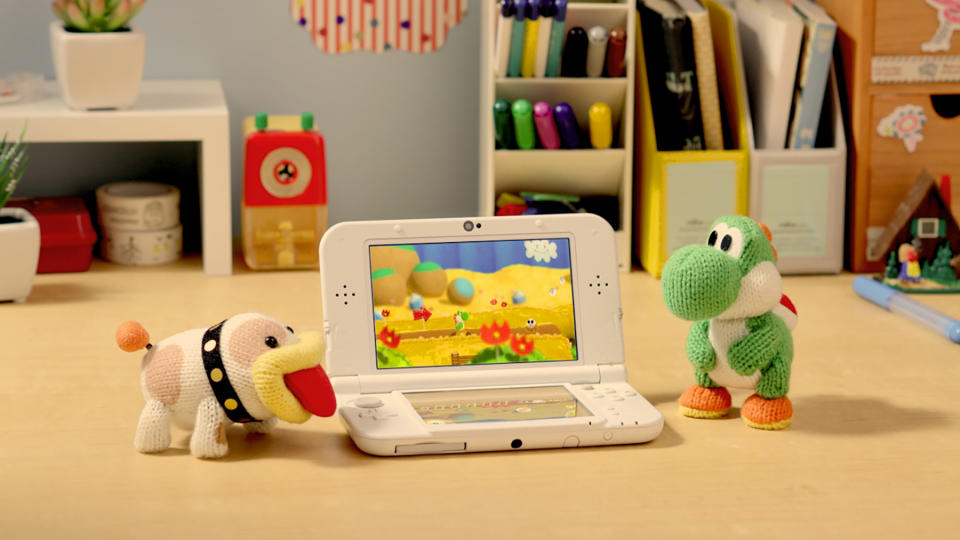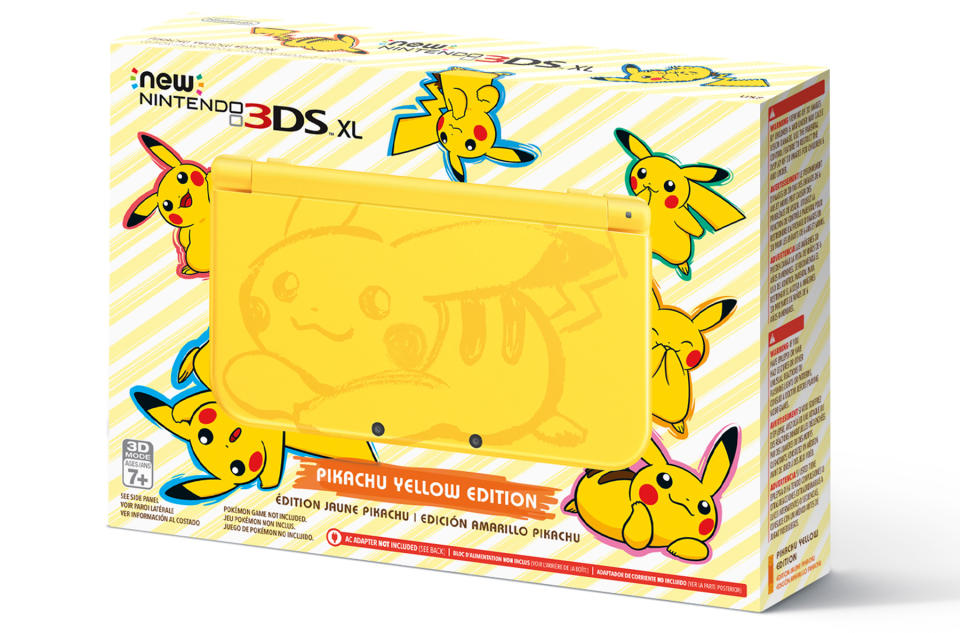The Nintendo 3DS is here to stay (for now)
A handful of games are still in the pipeline.

With the Switch fast approaching, you might think Nintendo is ready to give up on the 3DS. Not so. The company has a small, but significant stack of games planned for the handheld in 2017, and it wants you to know about them. In a press release today, the company highlighted Poochy & Yoshi's Woolly World, which comes out on February 3rd, Mario Sports Superstars -- which now has a release date, March 24th -- and Pikmin, a side-scroller spin-off featuring Captain Olimar and his color-coded friends. A (rather fantastic) Pikachu-themed new 3DS XL is also coming to America for $199.99 on February 24th, following its release in Japan late last year.

Missing from that roster is Fire Emblem Echoes: Shadows of Valentia, an upcoming remake of the Famicom classic Fire Emblem Gaiden. The game is notable because the original was never released outside of Japan. (Like Mother 3, it's often referred to as a "lost" game in the West.) It'll be joined by Fire Emblem Warriors, a spin-off hack-and-slash title in the fall.
The Wii U, meanwhile, is close to retirement. Nintendo has confirmed that The Legend of Zelda: Breath of the Wild will be the last game that it releases for the system. Existing titles will still be sold, and the company will maintain the Wii U's online services, but that's about it. The different approaches reflect the install base and interest in both platforms. While the Wii U has struggled to break 15 million sales, the 3DS sits above 60 million -- a paltry sum in comparison to the DS, but impressive nonetheless.
Games like Pokemon Sun and Moon have shown there's still life in the old system. The 3DS is pretty cheap, and the 2DS is even cheaper, making the platform an ideal choice for young children. The future of Nintendo's business rests with the Switch, but for now it makes some sense to support the ageing 3DS too. Yes, it's possible the two will cannibalise each other's sales. But they offer vastly different experiences -- the Switch is a far more powerful console, and doubles as a capable home system. It's clearly aimed at an older demographic (most Switch trailers have focused on twenty and thirty-something hipsters), one with a little more disposable income.
That's not to say Nintendo doesn't want kids buying the Switch. It's just that for now, the company thinks there's a market for both. As Reggie Fils-Aime told CNET: "In the end, we want people of all ages engaging with Mario and Zelda and the content that's available across both platforms."

